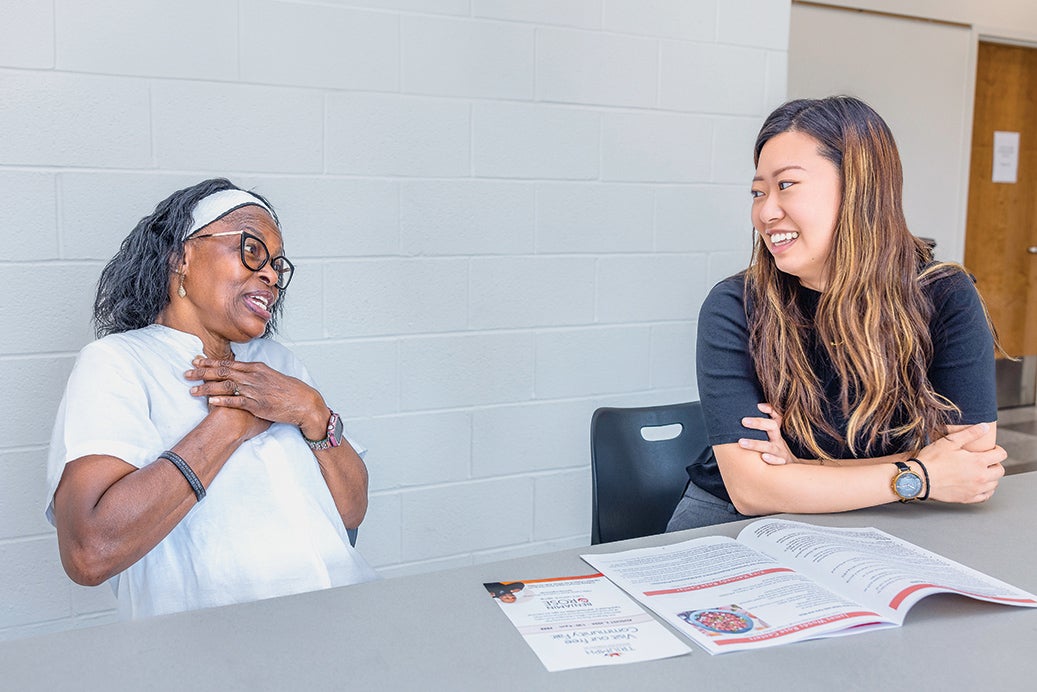lens
Understanding Active, Older Patients
Medical students tend to their elders
 Photo by Matt ShifflerDelores Drake and CWRU medical student Katie Zhang during one of their one-on-one sessions they had as part of the Kowal SAGE Geriatrics Program.
Photo by Matt ShifflerDelores Drake and CWRU medical student Katie Zhang during one of their one-on-one sessions they had as part of the Kowal SAGE Geriatrics Program.As a new Case Western Reserve University medical student, Katie Zhang didn't want a skewed view of older patients—especially if those she mainly saw were hospitalized and declining physically or cognitively.
So, she signed up for a CWRU School of Medicine elective program that pairs interested first-year students with active seniors—and met Delores Drake, a 70-year-old whose motto is "you gotta keep it movin.'"
"I've learned so much from her—about life and aging," said Zhang, who spent time with Drake during nine monthly one-on-one sessions, including one at a fitness facility where they worked out together.
"This is a side of medicine I don't think I would have been able to get in our regular curriculum."
That's why the medical school launched the Kowal SAGE Geriatrics Program last year as an elective course.
"Our entire population is aging and we're in the job of preparing future physicians," said Mamta (Mimi) Singh, MD (GRS '00, epidemiology and biostatistics), who holds the Jerome Kowal MD Professorship in Geriatric Health Education at the school.
She created the SAGE (Senior Advisor in Geriatric Education) program with two gerontology-trained physicians at the Louis Stokes Cleveland Veterans Affairs Medical Center who also are assistant professors at the medical school: Elizabeth Fine-Smilovich, MD, and Teresa Dolinar, MD (MED '93).
The program aims to help first-year medical students improve communication skills, dispel misconceptions about aging, provide better care for older patients—and perhaps even decide to focus on geriatric care, a specialty needing more physicians.
It also gives them the opportunity to develop a long-term relationship with an older adult—and listen to them.
"There is so much wisdom to be gathered from older adults," Singh said.
The program is supported by The Jerome Kowal Endowment Fund, whose late namesake was a pioneer in geriatric medicine and the Amasa B. Ford Professor Emeritus of Geriatric Medicine at the medical school.
It is voluntary, but Singh hopes it will become mandatory for all first-year students.
For her part, Drake saw the program as another opportunity to be educated.
"I'm thinking I might learn something from the student," she said, "not knowing the student could learn something from me."
— PATTY ZAMORA





